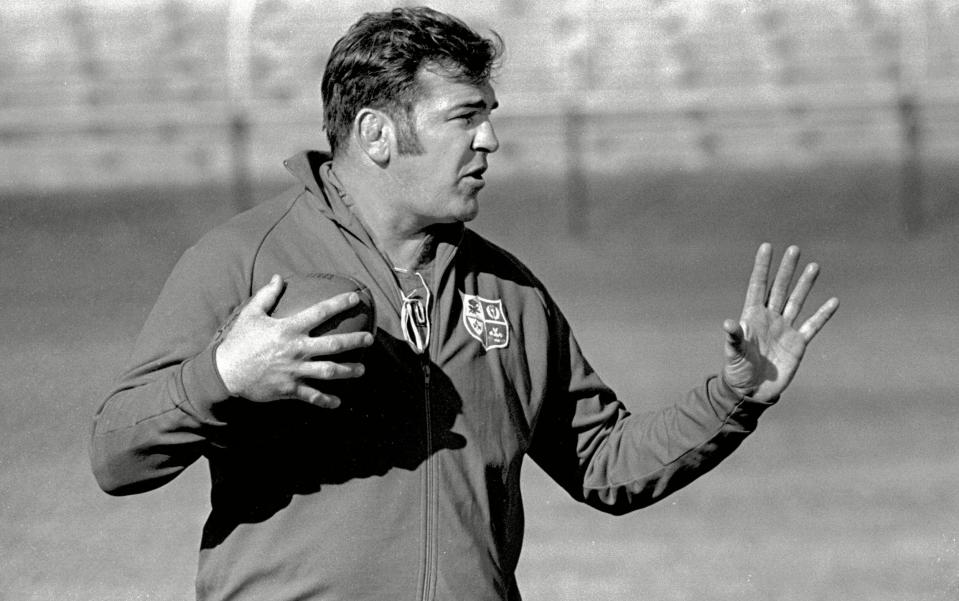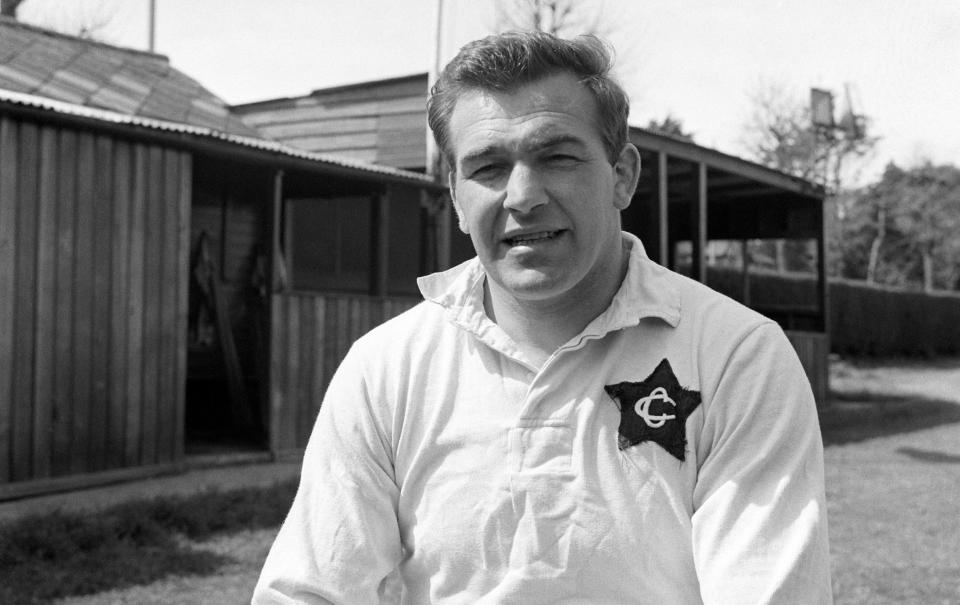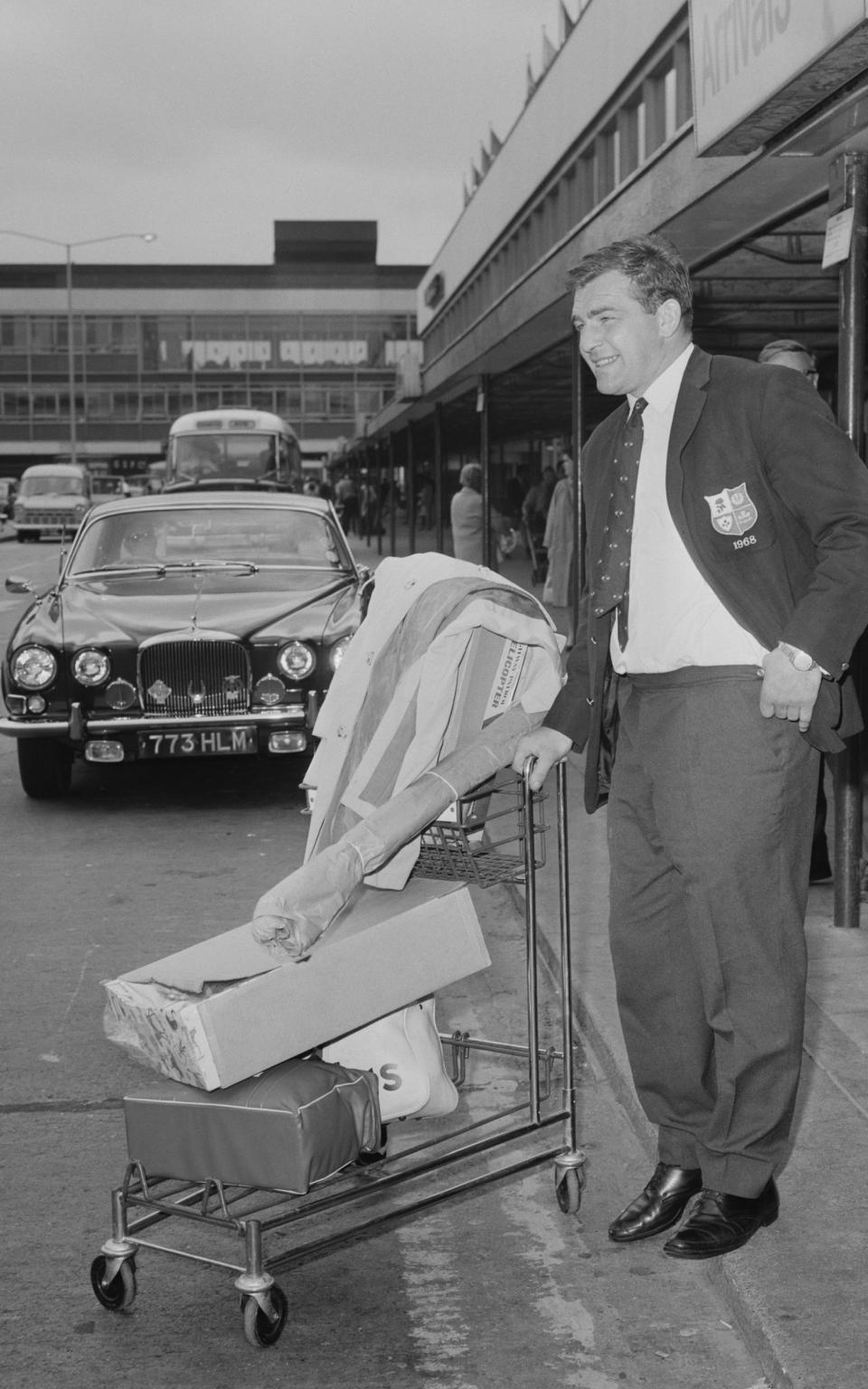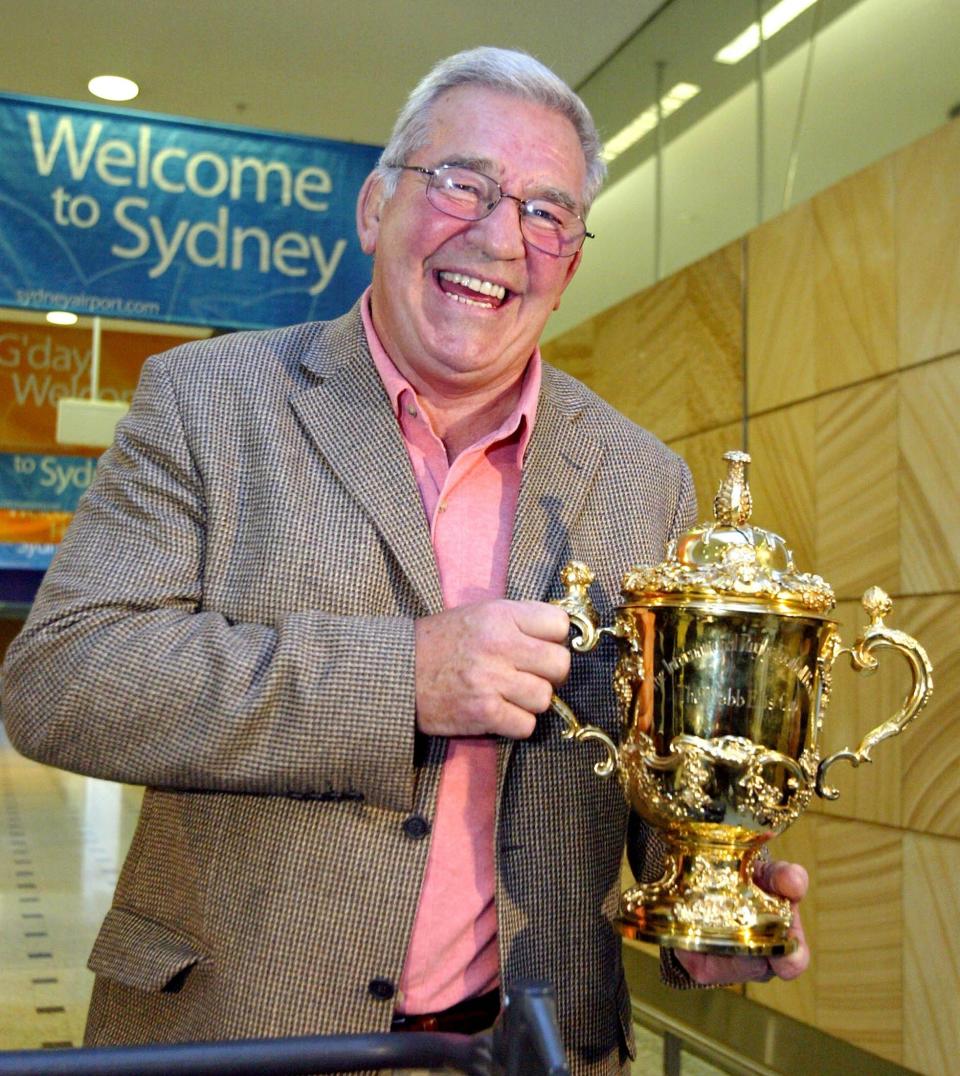
Syd Millar, who has died aged 89, had an influential role in rugby union for more than 50 years as a player, coach and senior administrator; as a prop forward he appeared 37 times for Ireland between 1958 and 1970 and nine times for the British & Irish Lions on three tours in the 1950s and 60s, before coaching the Lions on their unbeaten tour of South Africa in 1974 and then managing their trip to the same country in 1980.
He also managed Ireland at the 1987 World Cup before serving as chairman of the International Rugby Board (IRB) from 2003 to 2007, during which period he successfully oversaw the organisation of two World Cups.
Millar’s coaching of the 1974 Lions, who were victorious in 21 of their 22 matches and won the Test series 3-0, was an achievement of the highest order, one almost to match that of his predecessor, the Welshman Carwyn James, who was in charge of the Lions in 1971 when they won a series for the only time in New Zealand.
While James built that success around scintillating back play, Millar was a master of forward tactics, and in 1974 he assembled what is often considered to be one of the finest packs ever to visit South Africa, featuring the likes of Bobby Windsor, Fran Cotton, Roger Uttley, Gordon Brown, Ian McLauchlan and Fergus Slattery.

Aside from being a brilliant coach, Millar possessed fine man-management skills, and engendered great loyalty from his players on what was an often brutal tour. His support for their endeavours even extended to a tacit sanctioning of the “99 call”, by which any member of the team who was being set upon by a South African could shout “99” in the knowledge that his team-mates would immediately punch the opposition player nearest to them.
“Syd knew when to work and he knew when it was playtime,” said his Lions captain and fellow Ulsterman Willie John McBride. “We could really relax after the game and then, when it came to game days, that switch was switched on again and we were back to winning.”
John Sydney Millar was born on May 23 1934 in Ballymena, County Antrim, to James, a butcher, and his wife Amy (née Law). He went to Ballymena Academy, the same grammar school attended by McBride, and, like McBride, also played for Ballymena RFC, where he made the switch from his schoolboy position of outside-half into the scrum, operating in the tight or loosehead position with equal facility.
After leaving school at 16 Millar trained at Belfast Nautical College as a deck officer in the merchant navy before spending five years with Shell Tankers, sailing around the world. In 1955 Ballymena said they would find him a job if he would commit to their cause by giving up the maritime life, and he agreed to the plan.
Working first as a store manager in a cigar factory, he then joined Thomas Hedley & Co, selling soap to hospitals and laundries, before returning to Shell as a salesman of oils and lubricants to industrial companies. He remained with Ballymena throughout his playing career, also representing Ulster for a 14-year span.
Millar’s debut for Ireland came in 1958 against France in the Five Nations Championship in Paris. Within a year, and despite having played only five matches for Ireland, he was picked for the Lions tour to Australia and New Zealand in 1959, playing his part in convincing wins in two Tests against Australia but appearing in just the first of the four Tests against New Zealand.
On the Lions tour to South Africa in 1962 he played in all four Tests as part of an impressive pack that included six forwards of more than 15st apiece: Millar himself, standing at 6ft, was 16st. But the series was lost 3-0, with one draw.
Despite his Lions pedigree, Millar fell out of favour with the Ireland selectors after 1963, and apart from one match in 1964 did not appear for his country for the next five years, missing out as a consequence on the 1966 Lions tour to Australia and New Zealand. He was back with Ireland from early 1968 onwards and was selected for his third Lions tour, in South Africa, playing in two Tests, a 25-20 defeat in Pretoria and a 6-6 draw in Port Elizabeth, as the visitors went down 3-0 again.

Millar’s international career stretched out for a further two years up to 1970, when he played the last of his matches for Ireland aged 35 in a 14-0 victory against Wales at Lansdowne Road.
He was then coach of Ireland between 1973 and 1975, helping them to the Five Nations title in 1974 before moving on to work with the Lions on their highly successful tour of South Africa later that year. The “Invincibles”, as they became known, only missed out on a 100 per cent win record under Millar’s guidance due to a controversial drawn final Test in Johannesburg when the referee blew the final whistle four minutes early with the Lions poised menacingly near the South Africa try line.
He later served as a selector of the Lions squad to New Zealand in 1977 and then as Lions manager on the 1980 tour to South Africa, an altogether less happy trip that ended in a 3-1 series defeat and went ahead in the face of opposition from the British government and anti-apartheid protest groups.
By 1987 Millar was Ireland’s manager at the inaugural World Cup, in which his team reached the quarter-finals before being knocked out by Australia. Afterwards his focus turned to more general administration as he became president of the Irish Rugby Football Union in 1995 and represented that body on the IRB, to which he was appointed vice-chairman in 2002.

When the IRB chairman Vernon Pugh died aged 57 in 2003, Millar stepped into the role of interim chairman before being appointed on a permanent basis later that year. As chairman he was responsible for two World Cups, in 2003 in Australia, where he handed out the medals to England, and in 2007 in France, after which he stepped away from office and into retirement.
Having played 10 times for the Barbarians between 1959 and 1971, and having been on their committee for nearly 30 years from 1978 onwards, Millar was made a vice-president of the club in 2012. Over the years he had also kept up his connection with the Lions by being on their committee between 1993 and 1997 and serving as chairman from 1999 to 2002. He had continued to play at various levels for Ballymena until 1980, and was club president there for two spells, 1983-89 and 2008-13.
Outside rugby, in 1973 Millar moved from Shell to become managing director of Scott, a construction materials business in Toomebridge, Co Antrim.
A 1988 MBE for services to rugby was upgraded to CBE in 2005, and he was inducted into the International Rugby Hall of Fame in 2009. His other awards included the freedom of Ballymena in 2004 and appointment to the Légion d’honneur by the French government in 2007.
Syd Millar’s wife, Enid, predeceased him. He is survived by their daughter and two sons.
Syd Millar, born May 23 1934, died 10 December 2023
Article courtesy of
Source link